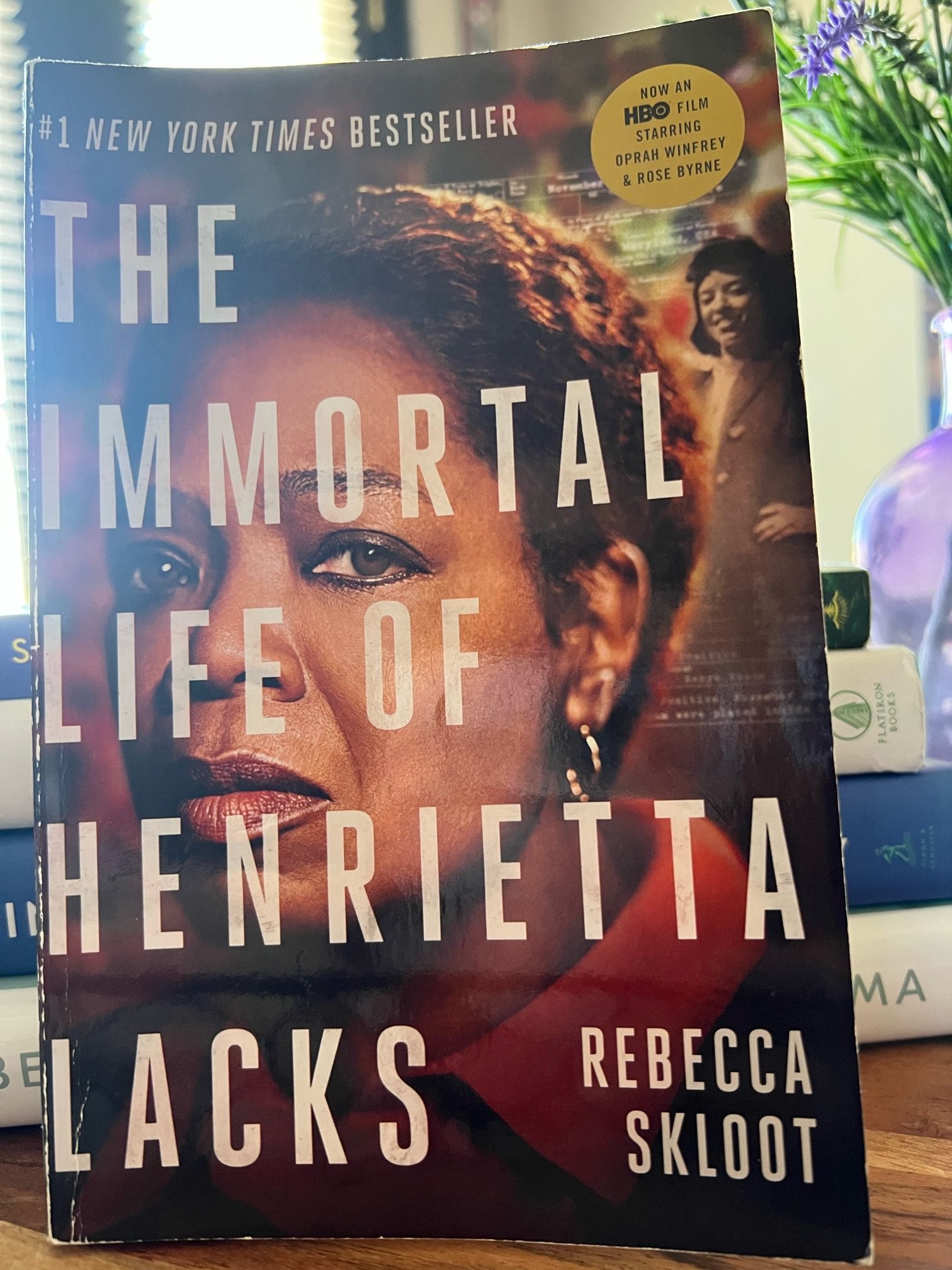The Immortal Life of Henrietta Lacks

Genre: Non-fiction, Biography
The Immortal Life of Henrietta Lacks is the story of a black woman Henrietta Lacks who was born in 1920 in Virginia and died at the age of 31 due to cervical cancer. Henrietta's cancerous cells were taken out of her body at John Hopkins for research without her or her family’s informed consent. Her cells (referred to as HeLa cells) were the first ones in history to survive outside the human body and have been used since the 1950s in developing polio vaccines, chemotherapy, gene mapping, invitro fertilization, Parkinson's disease, and whatnot. It was not until the 1970s, the family discovered that Henrietta’s cells were alive and numerous experiments had been done throughout the world by then. As a matter of fact, there are probably thousands of experiments going on all over the world right now as we are speaking of this.
Many people have made fortune out of her cells, and pretty much the whole of humankind has benefitted from the advancements in the medical field and research science because of HeLa cells, yet Henrietta's name was unknown to the world. The author has done an incredible job researching arduously on Henrietta and her family's story and bringing it to the world. She has unfolded the reality of racism, segregation, medical mistrust, scientific progresses, informed consent, medical records privacy, and other ethical considerations in medical research through her writing.
This book is also an intimate and emotional read as it comes to Henrietta’s family, their struggles to make peace with HeLa cells being alive out there in the world, and their own struggles of being unable to afford healthcare when all healthcare facilities they have been to probably have millions of HeLa cells. Henrietta's daughter Deborah grows on you as you flip through the pages. I'd say the author has blended the scientific, medical, social, personal, and emotional aspects of Henrietta's story perfectly to complete this book that keeps the reader hooked from the beginning till the end.
This book is a good reminder that things are not the way they are just cuz. There is a context and history to what happened for things to be in certain ways. It makes sense why we have ethical considerations, standards, and regulations in the medical field these days. Things have happened in the past, some really bad things for some people. The medical field has made significant progress over the years and at times at the cost of human privacy, respect, autonomy, and dignity. This book is a reality check for all of us to understand those things and acknowledge and honor people whose contributions (involuntary) have made medical advancements possible.
Thanks to Henrietta and her HeLa cells for medical breakthroughs throughout all these years and thanks to the writer Rebecca Skloot for spending years researching and bringing Henrietta’s and her family’s story to the world!
It's a good read y'all!